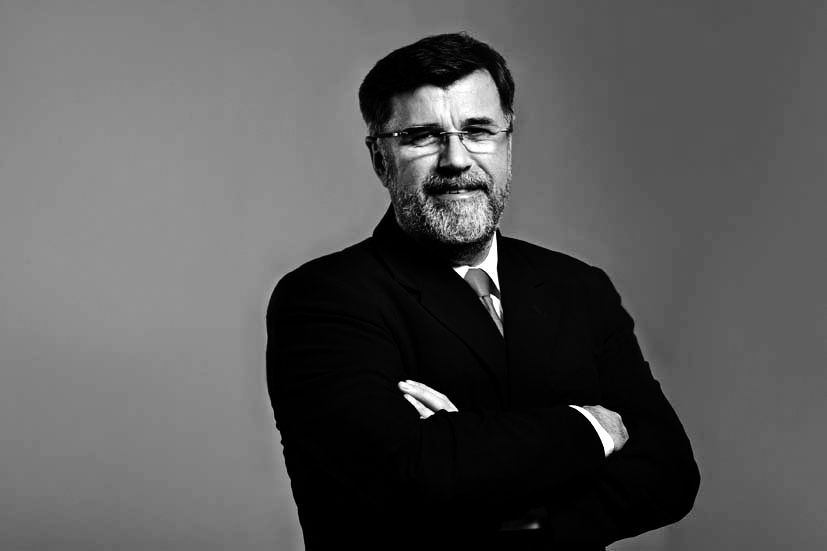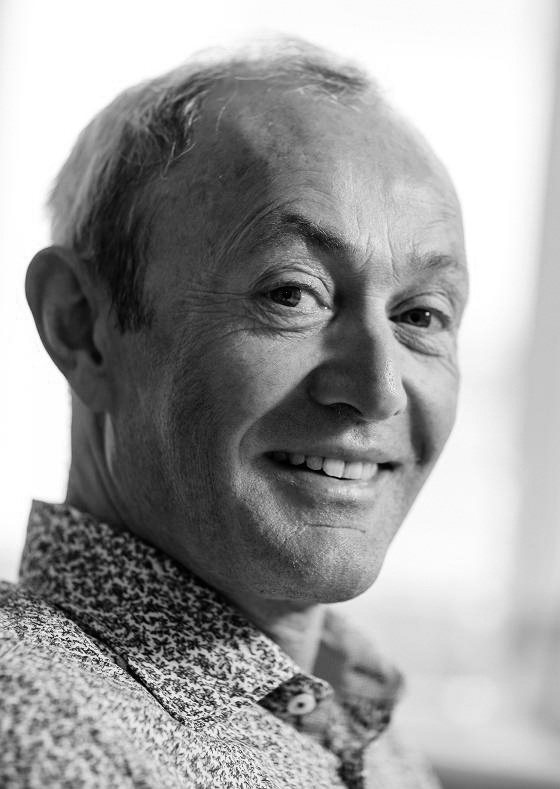(THIS ARTICLE IS MACHINE TRANSLATED by Google from Norwegian)
This summer, the trial of four men accused of being behind the murder of Serbian journalist and newspaper owner Slavko Curuvija opened in 1999. He was a staunch opponent of Slobodan Milosevic's regime, and not surprisingly belonged to all of Serbia's security services when the murder took place. done. The case came to court thanks to a commission appointed by the Serbian authorities in 2013 to investigate the murder of journalists. The topic is close to the head of the commission, Veran Matic. Like the murder victim Slavko Curuvija, he was also a champion of freedom of expression in Serbia in the 90s. As editor of the independent radio station B92, he was a critical voice in a media landscape dominated by pro-Milosevic propaganda. It was not without risk. "B92 was banned four times," Matic told Ny Tid. "On two occasions our equipment was seized and we had to start over from scratch." Matic himself was arrested on several occasions. "We were treated as enemies of the state, traitors and foreign mercenaries. We were subjected to police torture and constant threats, "he says. The dictator tightens the grip. Towards the end of Milosevic's reign, the situation deteriorated further. On March 24, 1999, NATO launched a bombing campaign against Serbia to pressure Milosevic to stop the fighting in Kosovo. While under attack, the dictator tightened the grip on the media even more notches. One of the country's last independent newspapers, Dnevni Telegraf, was shut down. The owner was Slavko Curuvija. His news magazine, Evropljanin, was also closed. Not long after the bombs began to fall, Milosevic Curuvija's wife accused NATO of invading the homeland. The statement received prominent notices in the regime's propaganda apparatus. There was talk of a notified killing when Curuvija was shot 17 times in the back as he left his home on April 11. Not long after, current Commissioner Veran Matic had to escape the country. B92 kept it going as an online news source, with Amsterdam as its headquarters. A dangerous precedent. Milosevic was overthrown after peaceful demonstrations in October 2000. Since then, B92 has developed into one of Serbia's leading media companies, with several television channels in addition to radio and online news services. Matic is the company's CEO. For years, he has been committed to holding those behind abuses against journalists in Serbia accountable. The commission he heads is investigating a number of journalist murders, and he hopes the ongoing trial will be the first of many. Matic has chosen this match because he fears that a dangerous precedent can be set if those who attack journalists are not punished. "The life of a journalist becomes worthless if it turns out that murder is the cheapest way to prevent freedom of expression," he says. It is a perspective that puts Norway's role in the story in a critical light.


The life of a journalist becomes worthless if it turns out that murder is the cheapest way to prevent freedom of expression.
Matic, who is himself a victim of RTS 'propaganda, is hurting by swallowing NATO's reasoning. He emphasizes that the attack was exploited by Milosevic's propaganda apparatus. Credible reports suggest that the regime may have allowed employees to remain in the building even though they knew an attack was underway, precisely to score propaganda points. Nevertheless, Matic condemns the bombing for reasons of principle. "If we approve of this justification, we will open up the bombing of almost half of the world's media," he said. Thomas Spence points out that there are several examples of this type of attack in recent years, citing Western bombings of Al Jazeera's offices in Kabul and Baghdad, as well as Israel's attacks on Arab and Western media offices during the 2009 attack on Gaza. Since NATO's rocket hit the RTS building, more than 1000 journalists and media workers have been killed in the post office worldwide. In 2014, 118 people were murdered to do their jobs. The numbers do not say anything about how many of them were employees of companies that disseminated propaganda to leaders "who have been very skilled". Expensive transition to market economy. Today's Serbian media image is characterized by sensationalism, tabloidization and raw commercialism. Digging, independent quality journalism is in short supply. Veran Matic places the responsibility on the transition from quasi-communist dictatorship to market capitalism. "We mastered the challenges posed by Milosevic's regime, but not the challenges posed by democracy," he said. "It includes the wild market that was immediately established as a system." During the transition, the importance of the media for the development of democracy was not emphasized. This led to the press being left to market forces – without considering the central role of the fourth state in a well-functioning democratic society. Today, there is hardly anything that can be called a quality newspaper in Serbia – there is no money to be made from something like that. An endless stream of talent competitions, Turkish soap operas and music videos are shown on television. Debate programs are often either superficial or clearly biased. Matic – who is himself the managing editor of one of the country's largest media companies – characterizes today's Serbian media as weak, and primarily focused on the struggle to survive financially. Low-paid profession. The son and daughter of the slain journalist Slavko Curuvija have set up a foundation, named after his father, which aims to raise the quality of Serbian journalism. With assistance from several international organizations, including the Danish Embassy in Belgrade, they offer courses, scholarships and technical support to young Serbian journalists. General manager Ilir Gashi tells Ny Tid that an important reason for the lack of critical, independent journalism is that owners like to use media companies as mouthpieces to promote their own agenda. According to a serious rumor, for example, the owner of Serbia's largest cable television company has escaped a significant tax claim in exchange for positive coverage of the ruling party on the company's many channels. The country's political elite can also use "soft censorship" – such as curtailing advertising budgets, or denying access to interviews – as a means of manipulation. To keep journalists in check is usually not necessary threats or violence. "Journalism is a low-paid profession in Serbia," Gashi explains. "Job security is also absent. Media employees work on a freelance basis – which of course makes them easier to control. " As the situation is, it does not appear rational to risk being fired by producing critical, independent journalism, Gashi concludes. Should anyone decide to challenge the country's power elite through the media, it can be punished. Veran Matic has had a 92-hour police patrol since B2009 published corruption allegations on the TV show Insajder in XNUMX. As recently as last week, the host of the Insajder received a death threat via the Facebook page of the Slavko Curuvija Foundation. Old lies must survive. An uninformed electorate is the greatest threat to democracy. Perhaps most worrying is that the situation seems to be even worse in the rest of the Western Balkans. While Serbia is ranked 54th in the world in Reporters Without Borders' annual press freedom survey, Croatia is ranked 65th, Bosnia-Herzegovina 66th, Montenegro 114th and Macedonia123. Kosovo and Albania are ranked 80th. numbers 85 and XNUMX, respectively.
Today's Serbian media image is characterized by sensationalism, tabloidization and raw commercialism.
The fact that an independent press has not grown in step with democratization in these countries can have serious consequences. Ilir Gashi believes that a weak media sector in Serbia has led to many of the dictatorship's lies never being challenged. He cites a concrete example: to this day, it is widely accepted in Serbia that NATO's 1999 bombing was codenamed "Angel of Mercy", a product derived from Milosevic's propaganda. Perhaps a banal detail, but still a gloomy indication of how old lies have taken root among ordinary people. There is no reason to believe that things are any better in the neighboring countries, where lies, media manipulation and propaganda were also used to whip up hatred and incitement to war in the 90s. Perhaps things would have been different today if the West had responded to propaganda from all sides in the conflict with balanced, well-informed, fact-based journalism instead of rocket attacks.
Jensen is a freelance journalist. johanjensenjournalist@gmail.com.


